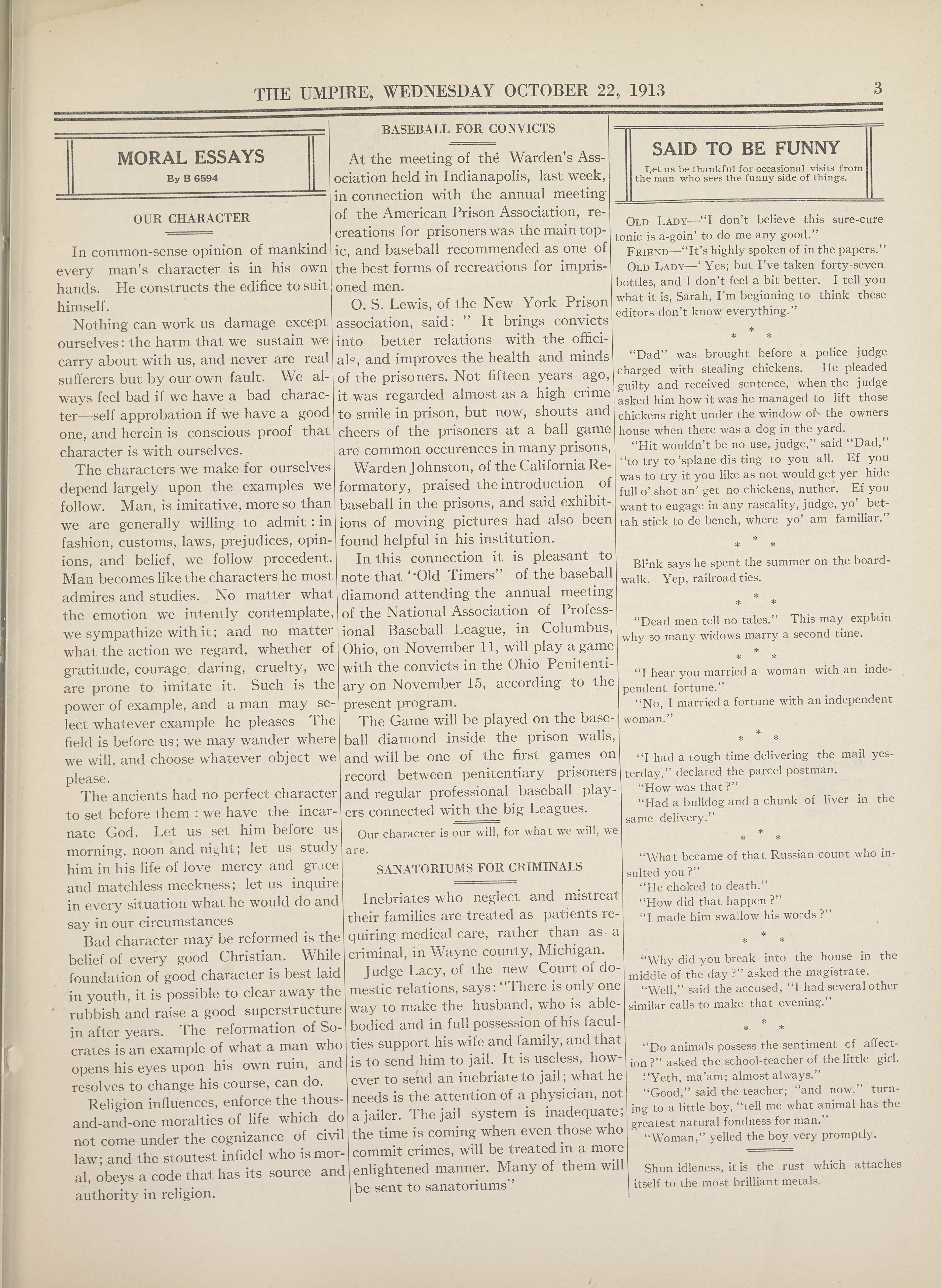Devoted to the Interests and Entertainment of its Readers
Printing in Prisons
Designed in Memory of Incarcerated Printers & Typesetters
Established 2023
Our Character
- Author: B-6594
- Editor: B-6591
- Newspaper: The Umpire volume 2
- Page Number:
- Date: 10 22 1913
- Tags:
MORAL ESSAYS By B 6594 OUR CHARACTER In commonsense opinion of mankind every man's character is in his own hands. He constructs the edifice to suit himself. Nothing can work us damage except ourselves: the harm that we sustain we carry about with us, and never are real sufferers but by our own fault. We always feel bad if we have a bad character—self approbation if we have a good one, and herein is conscious proof that character is with ourselves. The characters we make for ourselves depend largely upon the examples we follow. Man, is imitative, more so than we are generally willing to admit :in fashion, customs, laws, prejudices, opinions, and belief, we follow precedent. Man becomes like the characters he most admires and studies. No matter what the emotion we intently contemplate, we sympathize with it; and no matter what the action we regard, whether of gratitude, courage, daring, cruelty, we are prone to imitate it. Such is the power of example, and a man may select whatever example he pleases The field is before us; we may wander where we will, and choose whatever object we please. The ancients had no perfect character to set before them : we have the incarnate God. Let us set him before us morning, noon and night; let us study him in his life of love mercy and grace and matchless meekness; let us inquire in every situation what he would do and say in our circumstances Bad character may be reformed is the belief of every good Christian. While foundation of good character is best laid in youth, it is possible to clear away the rubbish and raise a good superstructure in after years. The reformation of Socrates is an example of what a man who opens his eyes upon his own ruin, and resolves to change his course, can do. Religion influences, enforce the thousand-and-one moralities of life which do not come under the cognizance of civil law; and the stoutest infidel who is moral, obeys a code that has its source and authority in religion.

